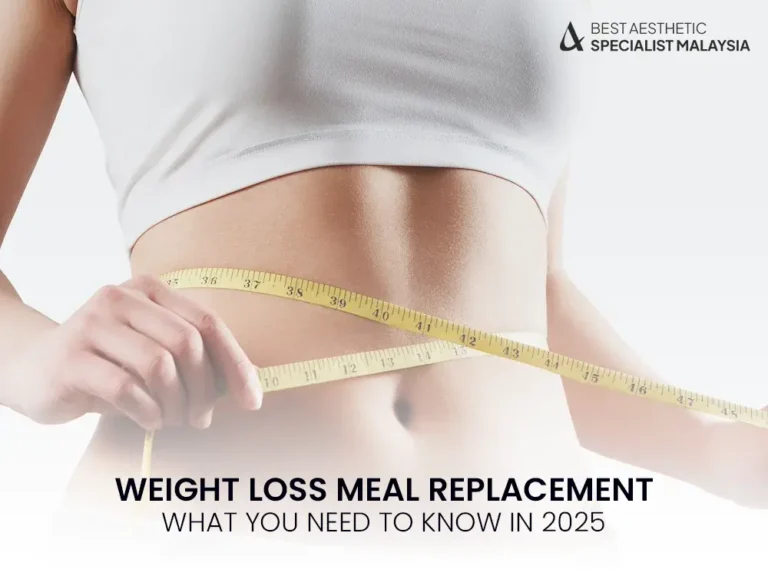What Are Meal Replacements?
Meal replacements are calorie-controlled food alternatives—usually in the form of shakes, powders, or bars—designed to provide essential nutrients and help manage calorie intake. They are formulated to replace one or two meals per day and are commonly used in structured weight loss programs.
Do Meal Replacements Help With Weight Loss?

Yes, when used correctly, meal replacements can be effective tools for weight loss. Clinical studies support that structured programs using meal replacements lead to:
Reduced calorie consumption
Improved portion control
Consistent macronutrient intake
Fewer impulsive or unhealthy food choices
They also reduce the decision fatigue that often leads to overeating or skipped meals.
Who Should Consider Using Them?
Meal replacements are suitable for:
Busy professionals needing a quick, balanced meal
Individuals struggling with portion control
Those starting a structured weight loss plan
People looking for low-glycemic or low-carb options
They are not recommended as a sole food source but are ideal for replacing one or two meals per day.
Key Benefits of Meal Replacements for Weight Loss
| Benefit | Explanation |
|---|---|
| Controlled Calories | Makes it easier to maintain a calorie deficit |
| High in Protein | Supports muscle retention while losing fat |
| Balanced Nutrients | Includes fiber, vitamins, minerals, and healthy fats |
| Convenient and Portable | Ideal for busy or on-the-go lifestyles |
| Reduces Meal Planning Stress | Helps prevent impulsive eating or skipping meals |
What to Look For in a Quality Meal Replacement
When choosing a meal replacement for weight loss, consider:
Protein content: At least 15–20g per serving
Fiber: 4–8g to aid satiety and digestion
Sugar: Less than 8g per serving
Calories: Typically between 200–400 kcal
Micronutrients: A balanced mix of vitamins and minerals
Clean ingredients: Avoid artificial sweeteners, fillers, and trans fats
Top 5 Meal Replacements for Weight Loss (2025)
Here are some of the most trusted and effective options, available in Malaysia and globally:
1. Herbalife Formula 1 Shake
21 vitamins and minerals
Low GI, soy protein base
Great for structured programs
2. Optifast by Nestlé Health Science
Clinically backed, used in hospitals
High in protein, low in sugar
Best for intensive weight loss phases
3. GNC Total Lean Shake 25
25g protein per serving
High in fiber, low in carbs
Ideal for meal replacement + gym routine
4. Amway BodyKey Meal Replacement
Customizable with fiber and supplements
Tastes like real food
Available through local agents
5. Ensure Max Protein (for older adults)
30g protein, low sugar
Great for aging individuals maintaining lean mass
Available at most pharmacies in Malaysia
Note: Always consult a nutritionist or medical professional before beginning any meal replacement program.
Are There Any Risks?
While generally safe, meal replacements shouldn’t be used to replace all meals long-term. Potential issues may include:
Nutrient gaps if overused without proper supplementation
Boredom or taste fatigue
Over-reliance leading to poor transition back to whole foods
Balanced use is key—aim to combine 1–2 meal replacements per day with one whole food meal.
FAQs: Weight Loss Meal Replacements
1. Can I use meal replacements long-term?
Yes, for 1–2 meals daily, as long as you’re getting at least one full meal with whole foods and nutrients.
2. Are meal replacement shakes good for women?
Yes. Many are formulated with specific nutrients for women, such as iron and calcium.
3. Do they cause muscle loss?
Not if you choose high-protein formulas and maintain regular physical activity.
4. Can I take them if I have diabetes?
Some low-GI formulas are safe, but always consult your doctor or dietitian first.
5. What’s the difference between meal replacement and protein shakes?
Protein shakes focus only on protein, while meal replacements provide a full macro- and micronutrient profile suitable to replace an entire meal.
Final Thoughts
Weight loss meal replacements can be powerful tools when used strategically. They simplify nutrition, control calorie intake, and support consistent weight loss—especially for those with busy lifestyles or trouble managing portions.
But remember: they work best when combined with healthy habits, whole foods, and guidance from professionals.
Looking to Start Your Weight Loss Journey?
Consult a certified dietitian or explore local clinics offering personalized meal replacement programs in Malaysia. Choose smart, eat balanced, and stay consistent.

